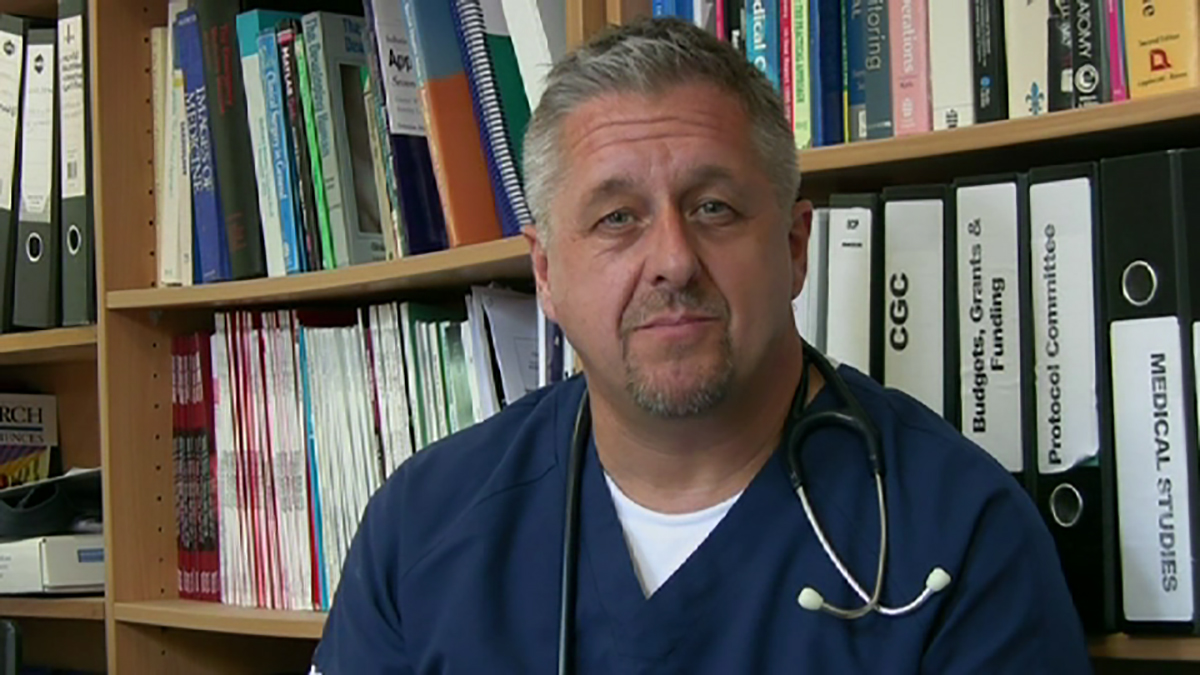Our ILP (Independent Learning Project) Students

A/Prof Paul Middleton
Director,
Paul.Middleton@health.nsw.gov.au
Phone: +61 (2) 8738 9382
Paul Middleton is a senior staff specialist in emergency medicine, a Fellow of the Australasian College for Emergency Medicine, and a Fellow of the UK Royal College of Emergency Medicine and the Royal College of Surgeons of England. He has an MD degree from Imperial College London, entitled “Physiological and Clinical Implications of Photoplethysmography Waveforms”, and a Master of Medicine degree in Clinical Epidemiology from the University of Sydney. He is a Conjoint Associate Professor in the UNSW South Western Clinical School and a Senior Fellow in the Simpson Centre for Health Services Research. He has published 88 peer-reviewed papers, 10 book chapters, one book and has given 49 invited lectures.

Dr Shiquan Ren
Data Scientist,
Shiquan.Ren@health.nsw.gov.au
Phone: +61 (2) 8738 9382
Shiquan

Ms Nilima Gupta
Executive Assistant,
Nilima.Gupta@health.nsw.gov.au
Phone: +61 2 8738 9382
Nilima Gupta

Dr Nikk Moore
Research Registrar | Senior Research Fellow,
Nicholas.Moore@health.nsw.gov.au
Phone: +61 (2) 8738 9382
Nikk Moore

Ms Carrina Lee
PhD Student,
Carrina Lee

Mr Riccardo Lee
PhD Student,
Riccardo is a UNSW PhD Candidate currently completing his PhD in Emergency Medicine and epidemiology at SWERI. Riccardo has a previously obtained his Bachelor of Medical Science and Bachelor of Science (Honours) from UNSW. His PhD project is focused on investigating the effect of multiculturalism on suspected sepsis patients presenting to SWSLHD EDs. This project aims to provide an initial insight into the epidemiology, socio-demographics, demographics, mapping, and predicative modelling of suspected sepsis patients with and without a CALD background in terms of patient presentation, utilization, and timeliness of critically important diagnostic and imaging investigations, treatment interventions, and patient outcomes.
Riccardo Lee

Mr Abdullah Alharbi
PhD Student,
Abdullah Alharbi

Ms Susie Sukarieh
ILP Student,
s.sukarieh@student.unsw.edu.au
Susie is a UNSW ILP 2020 Student undertaking a Bachelor of Medical Studies/Doctor of Medicine at UNSW. Her research at the SWERI is focused on a COVID-19 registry study, investigating the practice of Endotracheal Intubation in patients with known or suspected COVID-19. This involves compiling an accurate dataset of all suspected or confirmed COVID-19 patients intubated in participated hospitals, including baseline characteristics, physiology and ongoing trends, medication regimens, and intubation techniques, in order to facilitate continued quality assurance and improvement, as well as future research projects.

Ms Maria Zaidi
ILP Student,
Maria is a Bachelor of Medicine student currently in her fourth year at the University of New South Wales, undertaking her Independent Learning Project (ILP) at SWERI within the Ingham Institute. Her research project is centred in the emergency department at Liverpool Hospital, contextualising the clinical epidemiology of patients presenting with chest pain and presumably suffering from acute coronary syndrome. The study aims to create predictive models and describe associations with relation to coronary angiography and clinical outcomes, with a particular focus on culturally and linguistically diverse patients, to inform future emergency practises.

Ms Kaitlyn Cobcroft
Past Honours Student,
Phone: +61 2 8738 3980
Kaitlyn Cobcroft is a UNSW student, who is currently completing her Honours project in Emergency Medicine at the SWERI. Kaitlyn has a Bachelor of Medical Science degree from UNSW, with a major in Human Pathology, and will be undertaking a Bachelor of Medicine at UNSW following the completion of her Honours project. Her honours research at Liverpool Hospital Emergency Department is focused on patients with acute pulmonary oedema (APO). It aims to investigate the impact of common first line interventions on cardiac function in these patients, using measurements obtained with an ultrasonic cardiac output monitor (USCOM). This project- the ‘Cardiac Output in Heart failure’ (COHF) study- aims to collect and consolidate all available clinical and demographic data on patients presenting to Liverpool Hospital Emergency Department with APO over a three-month period. Using this data, multivariate analysis will be performed to elucidate the therapeutic effectiveness of specific interventions and derive predictive models of patient outcomes, based on differing treatments. It is hoped that this research will inform the medical and nursing processes provided for these patients.

Mr Jesse Reece
Past Honours Student,
Phone: +61 2 8738 3980
Jeshua Reece is an Honours student at UNSW, currently researching Emergency Medicine with the SWERI after completing a Bachelor of Medical Science with Distinction in 2018. Jeshua’s Honours project, Hyperglycaemic Presentations to the Emergency depaRtment, or the HYPER Study, aims to investigate the culturally diverse population in the South Western Sydney Local Health District to assess specific population trends in health and provide targeted preventative care. Diabetes is predicted to become the number one burden of disease over the next 10 years in Australia. In line with SWERI’s goal to use clinical research to provide evidence and guide healthcare, the HYPER Study aims to detect demographic trends in hyperglycaemic presentations to Liverpool Hospital ED. This retrospective study will analyse mass-data from over 90,000 patients using complex adaptive systems and Geographic Information System modelling. In doing so, the HYPER Study will serve as an epidemiological surveillance study to identify sufferers from hypergylcaemia in a tertiary setting. This is of particular importance to the structuring of the healthcare system, as literature suggests the worst controlled diabetics are the least inclined to access primary health institutions. Therefore, by identifying predictors and characteristics of high-risk diabetic groups, this project aims to potentially reorientate how and where primary health care is delivered.

Dr Una Nic Ionmhain
EM Specialist,
Una.NicIonmhain@health.nsw.gov.au
Phone: +61 2 8738 3980
Una Nic Ionmhain

Dr Tammy Wu
EM Specialist,
Tammy.Wu@health.nsw.gov.au
Phone: +61 (2) 8738 3980
Tammy Wu

Dr Guru Nagaraj
Geriatric EM Specialist | Director, Emergency Medicine,
guru.nagaraj@health.nsw.gov.au
Phone: +61 2 8738 3980
Guru Nagaraj is a staff specialist in emergency medicine, a Fellow of both the Australasian College for Emergency Medicine and the UK Royal College of Emergency Medicine. He is a senior lecturer at the University of Sydney and conjoint lecturer at the University of New South Wales. He had special interest in geriatric emergency medicine and international emergency medicine; he set up the first training program for geriatric emergency medicine in Australia. He serves as an executive member of the geriatric emergency medicine special interest group (GEMSIG) of ACEM and also is core member of the GEMSIG of the International Federation of Emergency Medicine. He is the author / co-author of several articles in the acute geriatrics series for Emergency Medicine Australasia, has presented at several conferences nationally and internationally on geriatric emergency medicine topics. He has visited several countries helping to setup and teach emergency medicine.

Mr David Toro
Research Fellow,
davidtoro2895@gmail.com
Phone: +61 (2) 8738 3990
David Toro is a University of New South Wales (UNSW) Medicine student completing his Honours year in Emergency Medicine. He has a Bachelor of Medical Science degree from UNSW. His research at Liverpool Hospital Emergency Department is focused on describing the demographic and clinical epidemiology of patients presenting to the ED over a 24-hour period. This ‘One Day in Emergency’- ODE study- aims to collect patient clinical and demographic data from disparate databases and perform multivariate analysis that will elucidate predictive models and associations with clinical outcomes. This is done with the overarching objective of demonstrating the benefit of systematically collecting and analysing clinical data in the ED.
